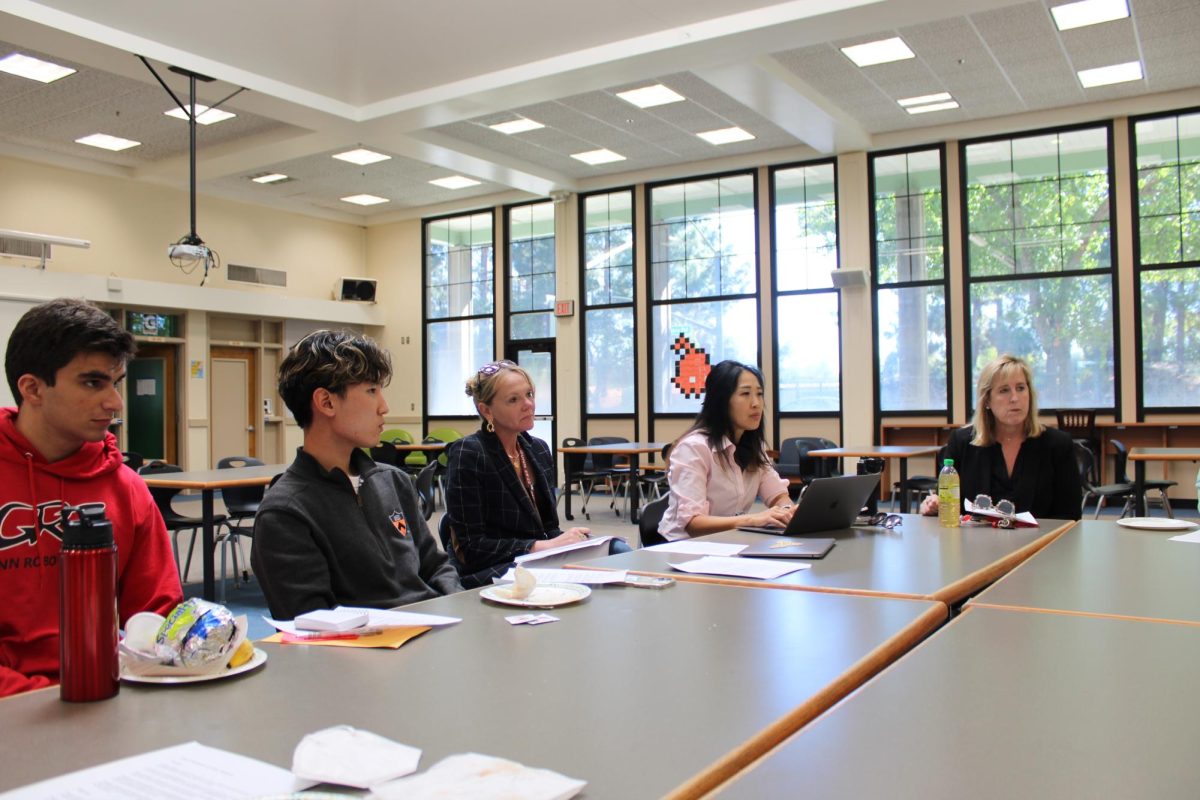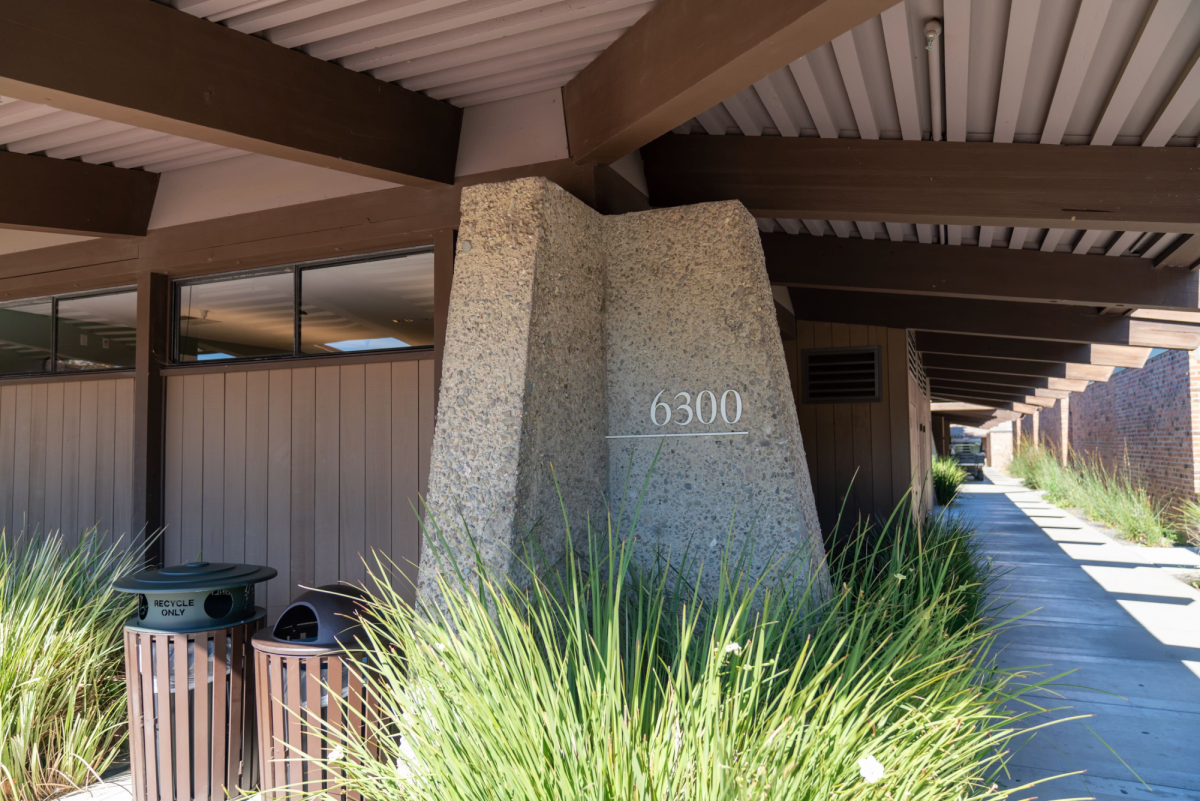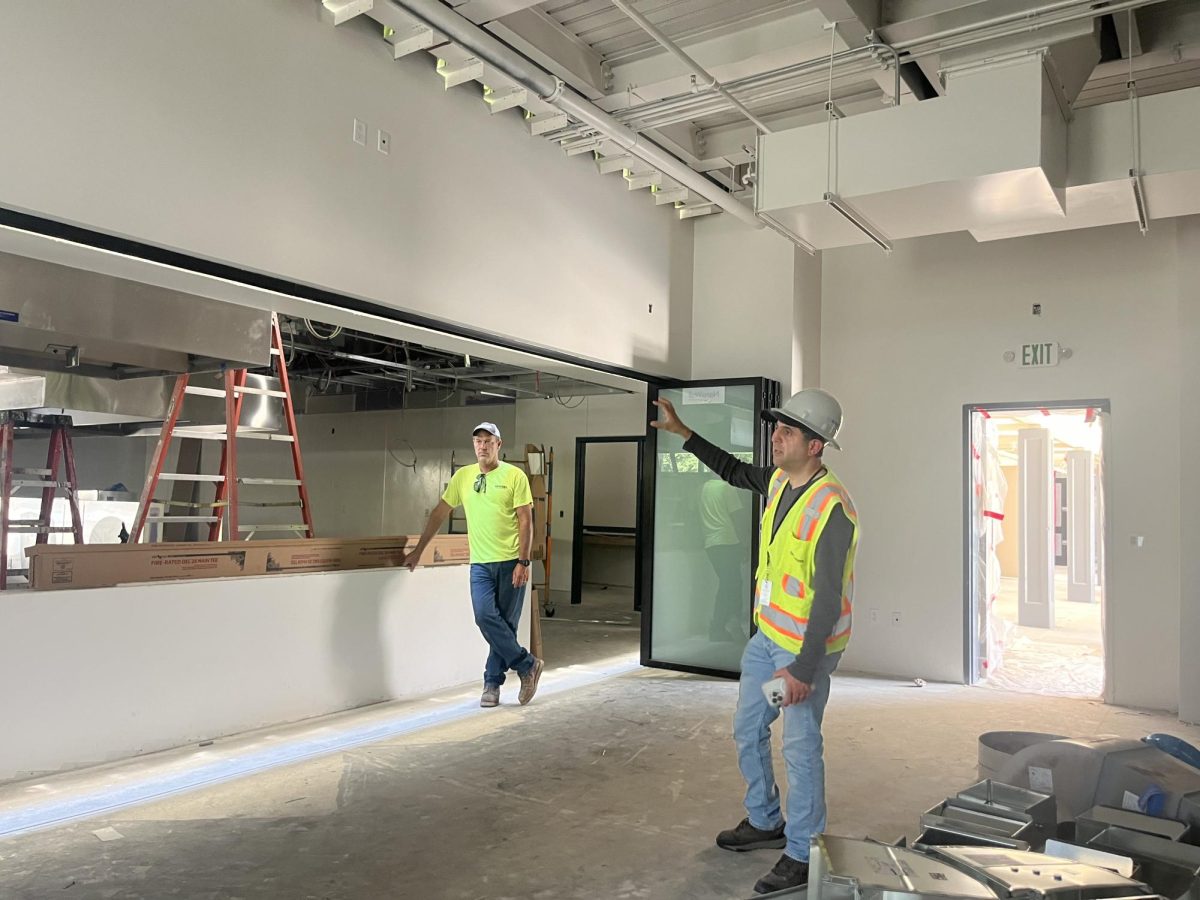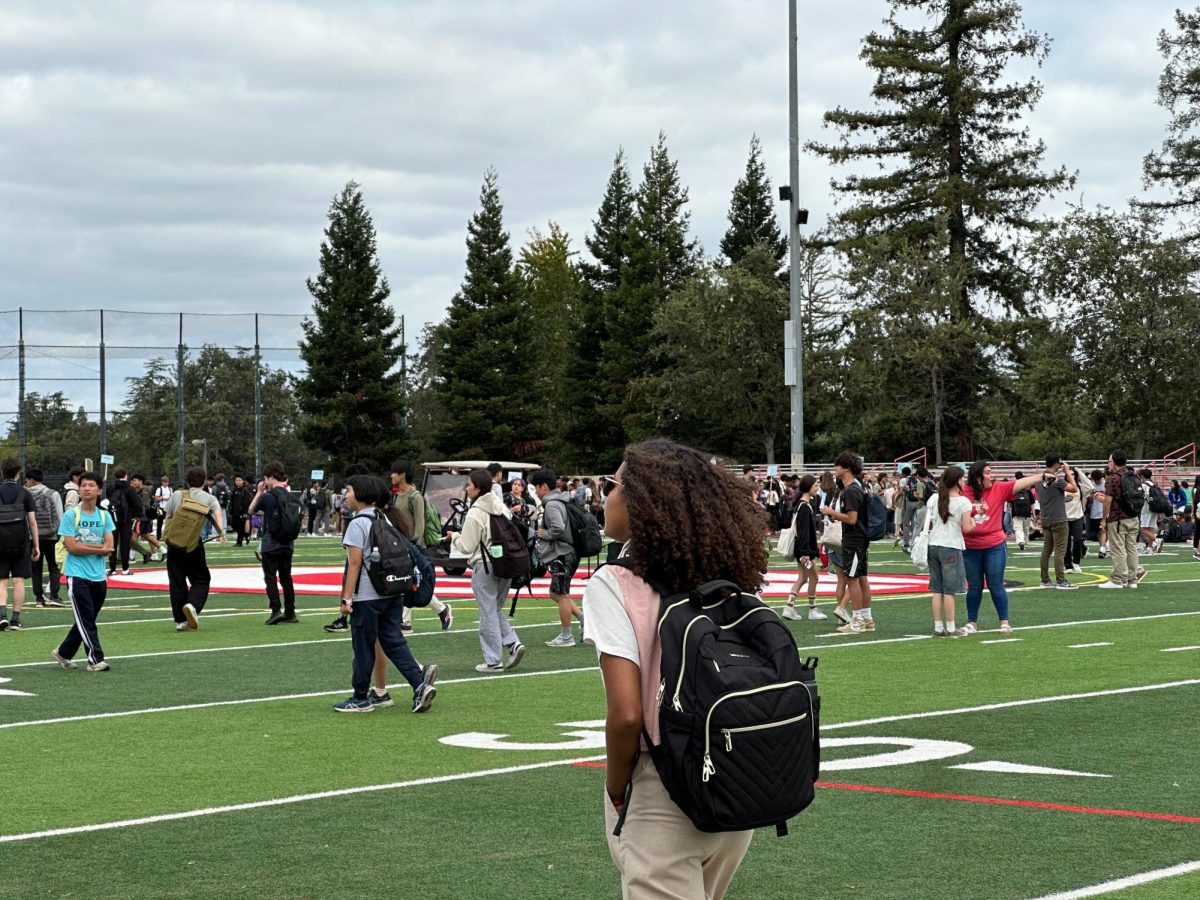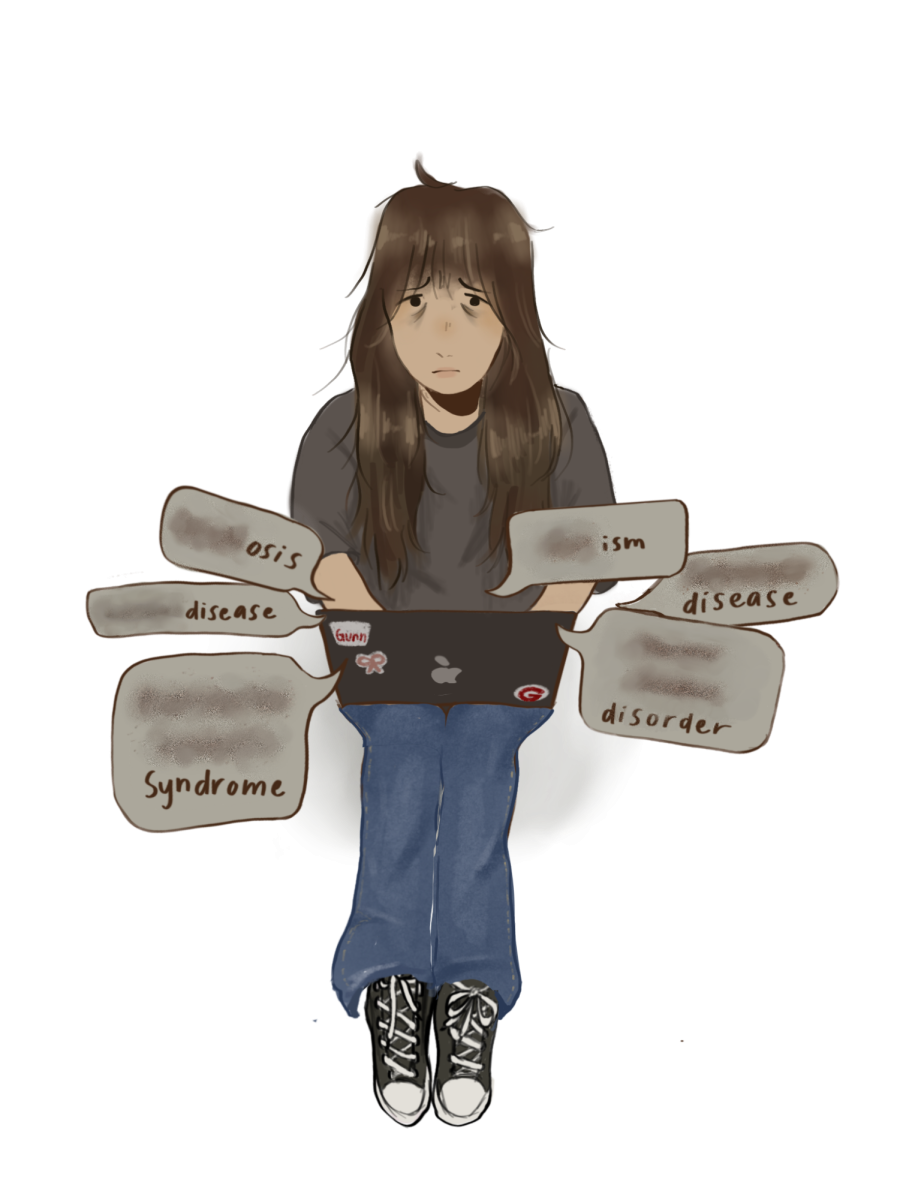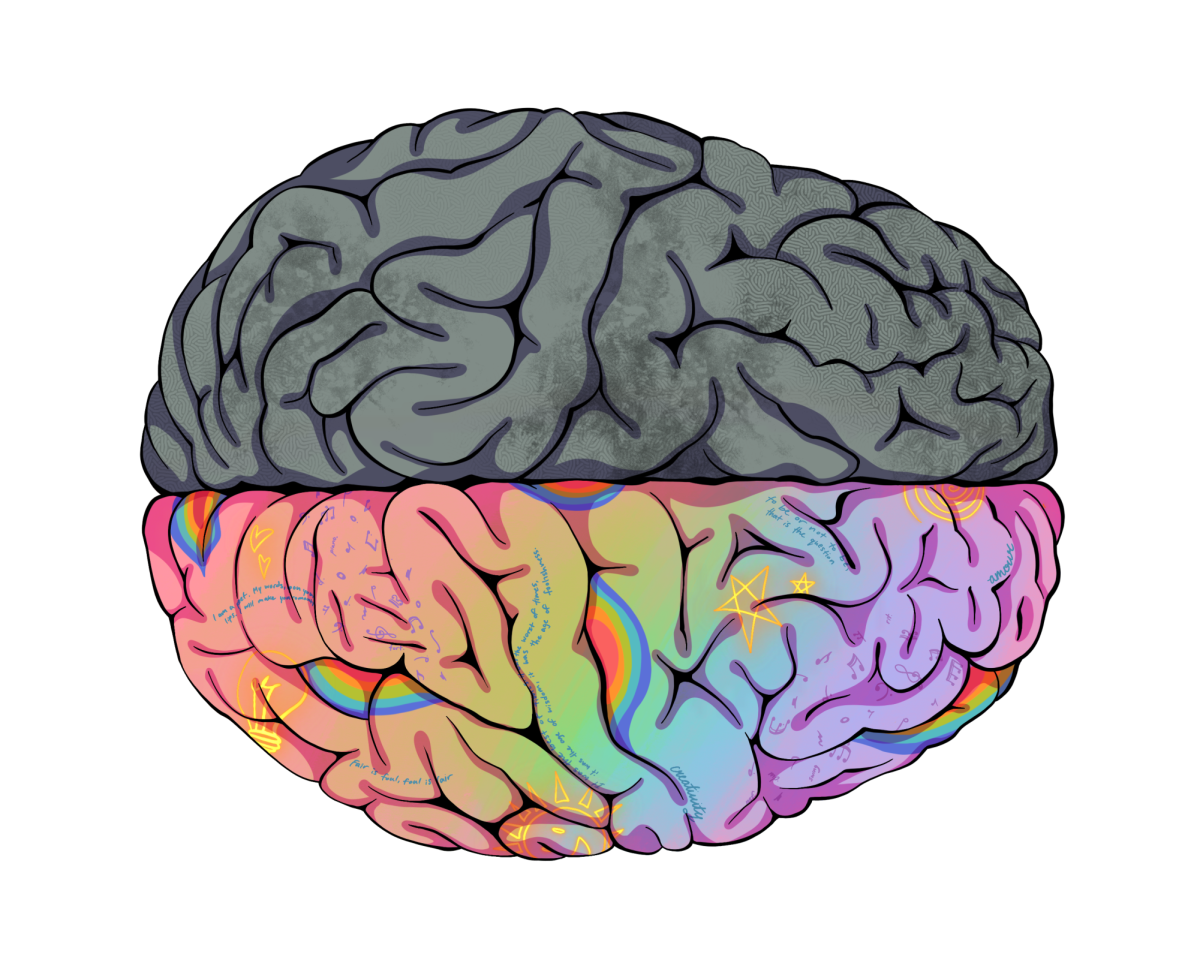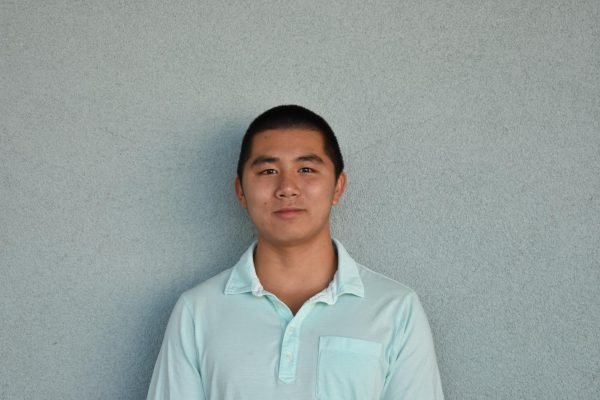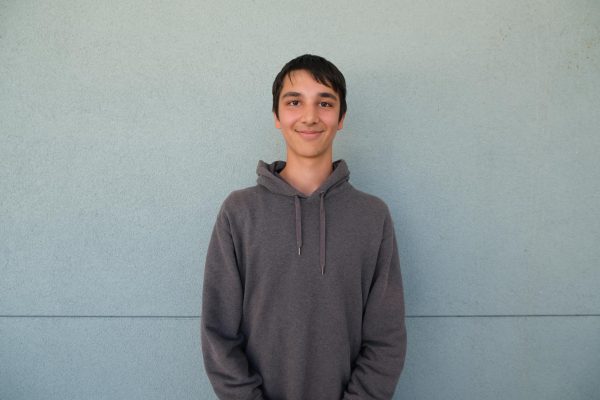On Oct. 12 during lunch, Gunn’s student Technology/Artificial Intelligence ad hoc committee held its first meeting to discuss technologies that could potentially impact education at PAUSD schools.
Following the development of ChatGPT and other generative AI, the district formed the short-term committee to not only address issues posed by AI, but also brainstorm ways to help students use it responsibly. According to English teacher Dr. Jennifer Cassel, the purpose of the ad hoc committee is to gather input and relay an action plan to the school board. The committee was open to all students, and some students were recommended by their teachers.
At the first meeting, the committee discussed appropriate academic uses of generative AI, including generating questions for test review and self-assessing grammar in world-language assignments.
Members also received the staff AI ad hoc committee’s rough policy guidelines. The guidelines define principles such as academic integrity and teacher autonomy, and list objectives such as encouraging responsible use of generative AI to enhance learning and fostering open communication between students and teachers. The guidelines also detail inappropriate uses of generative AI, such as on exams.
Committee members expressed interested in bolstering students’ comfort with making mistakes so that they won’t turn to generative AI. “We can’t ever lose sight of academic integrity,” Cassel said. “At the end of the day, especially in an English class, we want students to be able to write the AP exams without ChatGPT. You want students to be able to write independently of this tool, and also manage the tool and be in charge of the tool, and not (be) just at the mercy of the tool.”
At the next meeting, scheduled for Nov. 30, the committee plans to continue exploring productive educational-use cases and best practices of generative AI. The committee will also review the staff-drafted policies again to suggest potential improvements.
The end product of the committee will be a recommendation to the PAUSD school board, according to senior Dylan Huber. “Through communication with parents and teachers and staff, as well as the committee at Paly, our committee at Gunn will make a recommendation to the district board, and they’ll use that recommendation however they want to,” he said.
Although the committee is short term, sophomore Sam Laxman anticipates that the district will continue to adapt to AI use in education. “I think (the policies) are going to have to be revised pretty frequently because AI’s capability and the things it’s able to do are going to change very fast,” she said. “If the set of guidelines is really broad, then maybe that can stick for longer. But if they’re more specific, I think it could be a more long-term thing that’s meeting more frequently.”
Huber looks forward to further exploring the intersection of education and AI with the committee. “We’re trying to find a harmony between students and AI and teachers, and find a place where everyone’s happy with what the policy at Gunn is,” he said.
Cassel highlighted the value of collaborating with students to find a happy medium. “Every time the students help inform the committee, it’s golden because the students are ahead of a lot of teachers in terms of understanding the technology and how to use it,” she said. “Nobody is interested in prohibiting this, but we want to get a handle on how it can be used responsibly, and how teachers might be in a position to help students learn how to manage this new tool better.”


